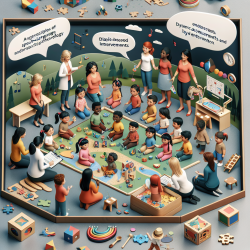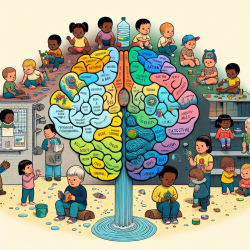In the field of speech-language pathology, culturally sensitive and effective assessment tools are crucial for accurate diagnosis and intervention. The research article "Dynamic Assessment and Small-Group Play-Based Context Supporting First Nation Children's Standard English Language Development" offers valuable insights into such tools, specifically tailored for First Nation communities.
The study underscores the importance of dynamic assessment—a method involving a test-teach-retest process. This approach helps differentiate between children who have not yet learned certain language skills due to limited exposure and those with genuine learning difficulties. The dynamic assessment tool was modified based on input from local Indigenous educators to ensure cultural relevance.
Key findings from the research include:
- Children were more likely to provide multiple-word responses with subjects and predicates when the educator affirmed their actions, provided information, and directed behavior.
- The involvement of a local Indigenous educator familiar with the children's dialect was instrumental in recognizing and recasting non-standard grammatical patterns.
For practitioners, implementing these findings can significantly improve outcomes. Here are actionable steps:
- Adopt Dynamic Assessment: Use a test-teach-retest process to gather detailed information about a child's language abilities and learning potential.
- Modify Assessment Tools: Collaborate with local educators to adapt existing tools, ensuring they reflect the cultural and linguistic context of the children.
- Engage Local Educators: Involve educators from the community in the intervention process to provide culturally relevant language models.
- Utilize Play-Based Interventions: Create small-group play sessions where children can interact with peers and educators in a naturalistic setting, enhancing their language development.
By integrating these practices, speech-language pathologists can offer more accurate and effective support to First Nation children, fostering better language development outcomes. Further research and collaboration with Indigenous communities are essential for refining these approaches and developing new, culturally appropriate tools.
To read the original research paper, please follow this link: Dynamic Assessment and Small-Group Play-Based Context Supporting First Nation Children's Standard English Language Development.










